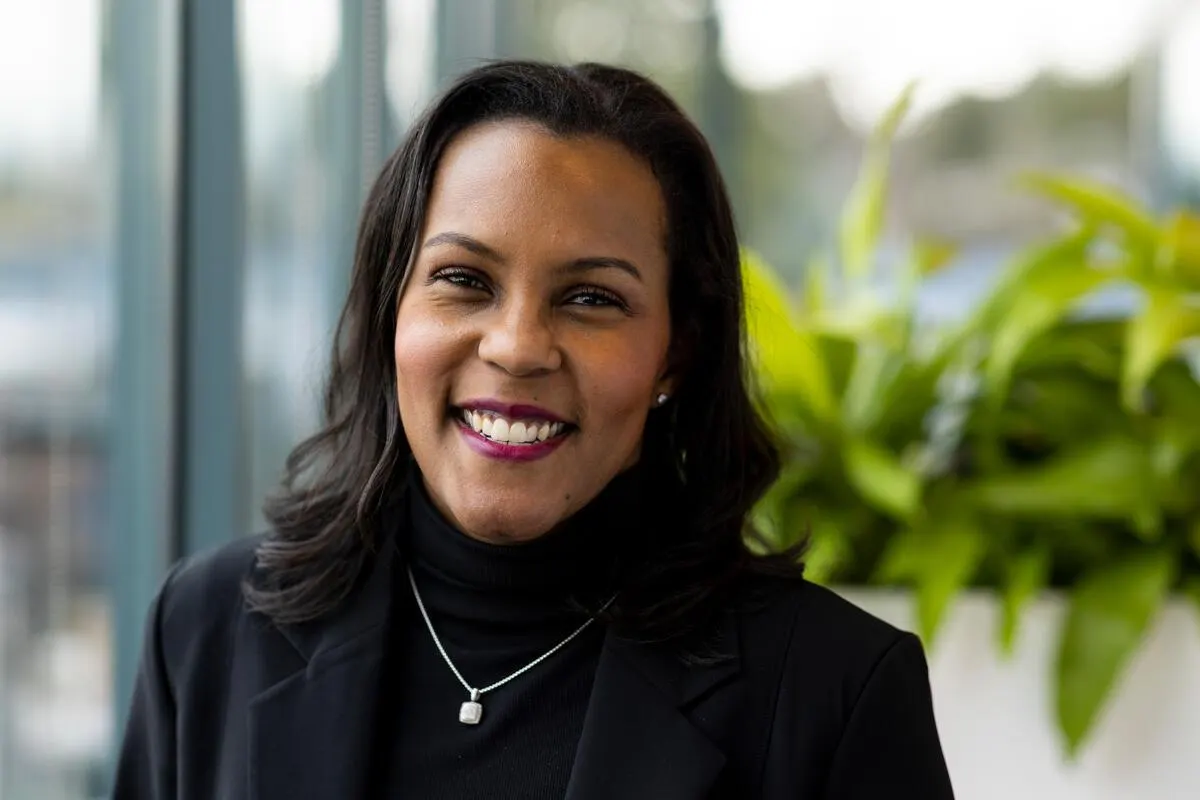Copyright forbes

Erin Harkless Moore is the managing director of investments at Pivotal Ventures. Pivotal Ventures, founded by Melinda French Gates, is a philanthropic, advocacy, partnerships, and high-impact investment organization that invests strategically in caregiving, women’s health, and financial access. Pivotal Ventures is betting that tackling women’s most significant challenges—caregiving, health, and financial access—is not just good for society but smart business. Founded by Melinda French Gates, the organization manages about $5 billion in assets across philanthropy, advocacy, partnerships, and high-impact investments. Its investment arm, led by Erin Harkless Moore, backs startups delivering market-based solutions to systemic barriers that hold women back. Pivotal teamed with The Holding Co. to conduct research that shows that 87% of women would switch health providers for care that understands them, 63% have stepped back from work due to caregiving, and 51% feel financially insecure. When we lighten the financial strain of caregiving, and improve and lower the cost of women’s healthcare, we unlock pathways to better health, steadier careers, and greater economic power. This article is the first inside look at how Pivotal Ventures turns that mission into direct investments across caregiving, women’s health, and financial access. Caregiving: America’s $648 Billion Opportunity Brittney Gavini, director of direct investments at Pivotal Ventures, moderates a panel at HLTH 2025 with Rebecca Egger, cofounder and former CEO of Little Otter and now president of care delivery and innovation at Hazel Health, which acquired Little Otter, and Ellen DaSilva, founder and CEO of Summer Health. Pivotal Ventures, founded by Melinda French Gates, is a philanthropic, advocacy, partnerships, and high-impact investment organization that invests strategically in caregiving, women’s health, and financial access. Americans spend $648 billion annually on the care economy, according to Invest in Care. Yet 63% of women report stepping back from work because of caregiving demands. “The direct investment strategy focuses on companies that are making life easier for everyday people, especially women, around the country and around the world,” explains Moore. MORE FOR YOU As families struggle to find caregiving help, investors are paying attention. Investment in caregiving companies is growing 33% annually—more than twice as fast as the broader market, according to Pivotal's analysis of PitchBook data. Among Pivotal’s caregiving investments are: Little Otter, recently acquired by Hazel Health, delivers virtual, family-centered mental health care for children and parents. Seen Health is a platform offering integrated medical care and rehabilitation to help older adults age comfortably at home. “We share the same passion for a caregiving moonshot: ensuring every older adult can age comfortably and safely at home,” notes Xing Su, co-founder and CEO of Seen Health. “In this current moment of significant policy shift around Medicaid and increased pressures on states, it’s invaluable to have access to Pivotal’s guidance and connections to policy leaders as we navigate uncharted waters.” Women’s Health: the $1 Trillion Opportunity Women live longer, die in poorer health, and pay more for care. McKinsey estimates that, by 2040, closing the gaps in women’s health could add $1 trillion to the global economy each year. That’s a massive opportunity! Pivotal’s direct investments in women’s health include: Millie is a tech-enabled maternal care company that blends virtual and in-person support throughout pregnancy and postpartum. Tia is a women’s health platform that integrates gynecology, primary care, and mental health into a single, connected clinic experience. Pivotal’s research underscores that women are both primary healthcare decision-makers and underserved consumers. A vast majority of women (87%) say they would switch providers for care that truly understands them, and 65% believe care that centers their experiences—like acknowledging racial identity and connecting physical and mental health—would make their healthcare experience great. Financial Access: Tackling the Triple Penalty Women face a “triple penalty” that systematically undermines their economic power. The gender pay gap widened for a second year in a row to $0.81 (Census Bureau), employed women pay $15 billion more each year in out-of-pocket healthcare costs (Deloitte), and provide $625 billion in unpaid caregiving labor (National Partnership). The burden compounds over time: 27% of women entrepreneurs in emerging markets lack the financial resources to grow their businesses (CARE), and women pay higher interest rates and receive smaller loan amounts. Women own nearly 40% of America’s small businesses, but in 2024 received 20.3% of SBA 7(a) and 540 loans, and 46% of SBA microloans. Even though women are driving entrepreneurship at scale, they’re still operating with disproportionately less financial support, which limits both their growth potential and the broader economic impact of women-owned businesses. Pivotal’s financial-access investments include: Founders First Capital Partners is a revenue-based financing platform expanding access to growth capital for underrepresented small business owners, including women and entrepreneurs of color. “Easing these burdens is how we expand women’s power and influence,” Moore adds. Bridging the Funding Gap With Real-World Insight Pivotal Ventures takes an intentional approach to investing—one designed to challenge bias and open doors. The firm commits capital early to help promising founders attract additional investors, often steering money toward those who’ve been overlooked. Its evaluation process focuses on performance potential rather than traditional archetypes of success, ensuring women—especially women of color—aren’t left out of the pipeline. Due diligence remains rigorous, but the goal extends beyond financial returns: to show that a range of experiences is a competitive advantage the market has been slow to recognize. Each investment aligns with Pivotal’s core focus areas, including caregiving, mental health, and financial access—sectors where broad-based innovation can deliver both impact and profit. That approach carries through to how Pivotal invests. The firm focuses on Series A and B rounds—the point at which many women founders hit a wall. At this stage, startups have proven their idea works and are bringing in early revenue, but they're about to hit the most brutal stretch of fundraising. Women founders often secure seed funding through personal networks or small checks, but many hit a wall at the Series A and B stages, Moore explains. By stepping in before promising founders fall off that cliff, Pivotal helps women and underrepresented entrepreneurs keep climbing toward scale. Its investments back startups that expand women’s power and influence while generating competitive returns. Beyond financial performance, Pivotal Ventures seeks founders whose lived experience connects directly to the problems they’re solving. Moore thinks founders who've lived through these challenges build better companies. Someone who's struggled to find childcare or afford healthcare understands the problem in ways an outsider never will—and that shows up in solutions that actually work. The firm backs founders who understand their users because they’ve been their users. That lived experience becomes a competitive advantage—it informs better products, stronger communities and, ultimately, better businesses. The Health–Wealth Connection A significant opportunity is also emerging as women inherit and create unprecedented wealth. Within the next decade, women will control the majority of U.S. wealth, opening the door for more women to invest in solutions that match their lived experience—whether as founders, funders, or consumers. French Gates is a role model for these women. By targeting the intersection of care, health, and finance, Pivotal Ventures is redefining what investment returns can mean. When you build companies to solve problems that affect everyone—but especially women—you increase access and opportunity for all, Moore says. This inside look reveals how Pivotal Ventures’s investment strategy connects profit and purpose—and how women’s economic power is becoming one of the most transformative forces in the global economy. Editorial StandardsReprints & Permissions



